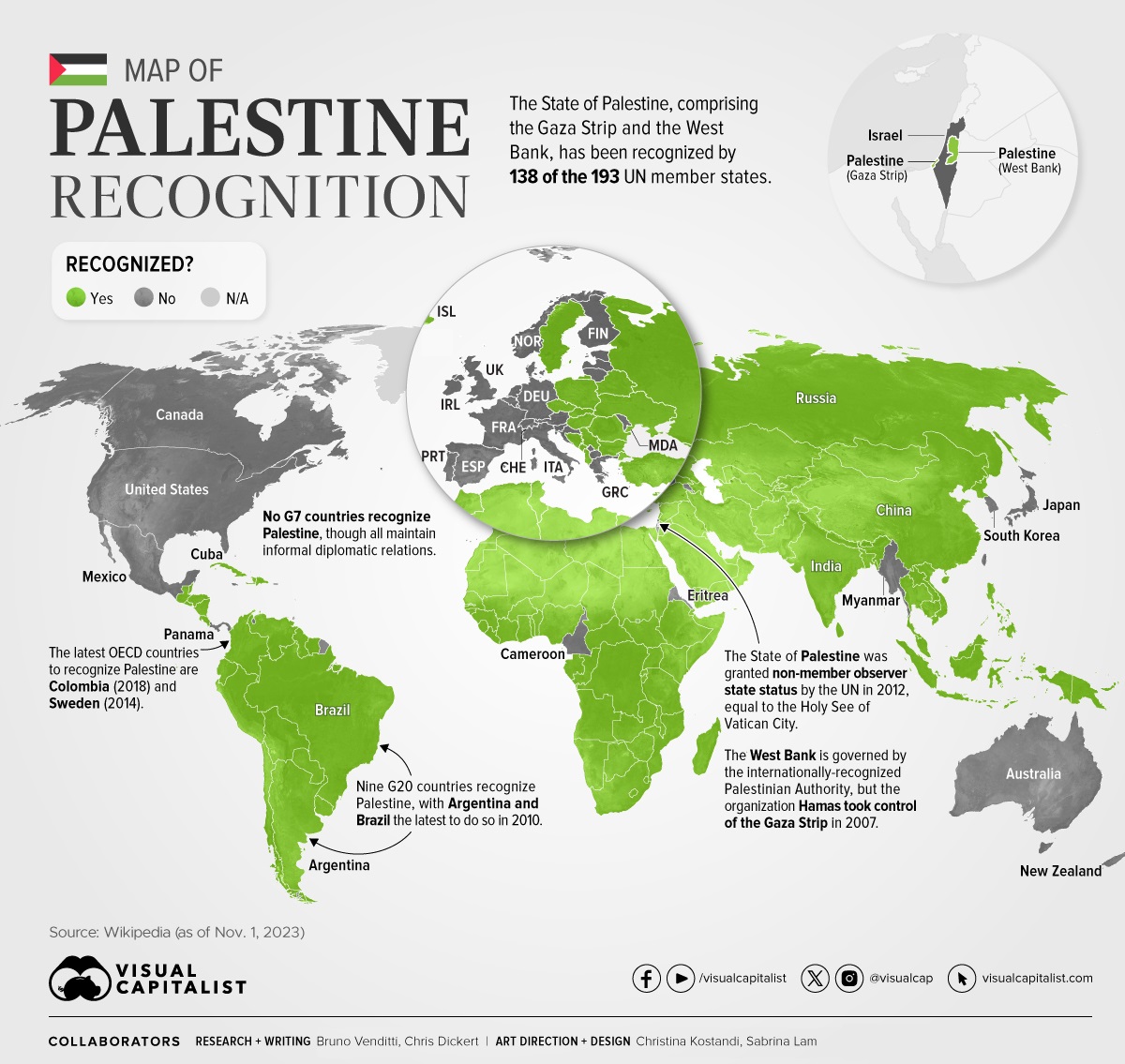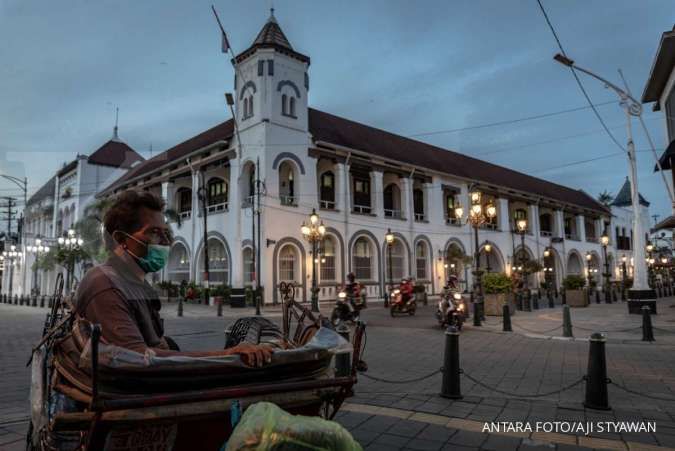Indonesia-Israel Relations: The Palestine Recognition Condition

Table of Contents
Indonesia's Strong Stance on Palestine
Indonesia's unwavering support for the Palestinian cause is deeply rooted in its history and national identity. The nation has consistently recognized Palestine, reflecting its long-standing commitment to self-determination and justice for the Palestinian people. This commitment stems from historical ties with the Arab world and Indonesia's prominent role within the Organization of Islamic Cooperation (OIC), a significant intergovernmental organization representing the Muslim world. Indonesia's vocal support translates into active participation on the global stage:
- Active Participation in International Forums: Indonesia consistently advocates for Palestinian rights in international forums such as the United Nations, actively pushing resolutions and voicing concerns regarding Israeli policies in the occupied territories.
- Humanitarian Aid and Support for Refugees: Indonesia provides substantial humanitarian aid and support to Palestinian refugees, offering both financial assistance and refuge to those displaced by the ongoing conflict.
- Strong Official Statements: Statements from Indonesian officials, including presidents and foreign ministers, consistently underscore the importance of establishing a sovereign and independent Palestinian state based on pre-1967 borders with East Jerusalem as its capital.
The Palestine Recognition Condition as a Non-Negotiable Factor
The recognition of Palestine stands as a non-negotiable prerequisite for normalized relations with Israel in Indonesia's foreign policy. This position reflects deeply held public opinion within Indonesia, where strong support for the Palestinian cause is widespread. Any deviation from this stance by Indonesian officials would carry significant political risks.
- Overwhelming Public Support: Numerous public opinion polls consistently demonstrate significant Indonesian public support for Palestine and opposition to any normalization of relations without Palestinian statehood recognition.
- Political Party and Civil Society Positions: Major Indonesian political parties and civil society groups have publicly affirmed their commitment to the Palestinian cause, making any shift in policy politically challenging.
- Potential Domestic Political Ramifications: A change in Indonesia's stance on Palestine recognition could trigger significant domestic political backlash, potentially impacting public approval ratings and political stability.
Limited Engagement Despite the Condition
Despite the Palestine recognition condition, some limited cooperation between Indonesia and Israel exists, primarily in non-political sectors. These interactions remain cautious and constrained, reflecting the overriding importance of the Palestine issue.
- Limited Economic and Technological Cooperation: While extensive cooperation is absent, there have been instances of limited engagement in areas such as technology transfer and specific economic ventures, often facilitated by third parties.
- Challenges and Obstacles: Significant obstacles hinder wider collaboration, including public opinion, political sensitivities, and the ongoing Israeli-Palestinian conflict.
- Potential Avenues for Future Cooperation: The potential exists for expanding carefully managed cooperation in non-political areas, such as technology, agriculture, or disaster relief, provided these collaborations do not compromise Indonesia's stance on Palestine recognition.
The Future of Indonesia-Israel Relations
The future of Indonesia-Israel relations remains uncertain, heavily reliant on evolving regional dynamics and shifts in the international community's approach to the Israeli-Palestinian conflict. The Palestine recognition condition will likely remain a central factor, shaping the nature and extent of any future engagement.
- Potential Scenarios Under Changing Circumstances: Future relations are contingent upon several factors, including the resolution of the Israeli-Palestinian conflict, regional stability, and changes in global power dynamics.
- Likelihood of Indonesia Changing its Stance: Given the deeply held convictions and political realities in Indonesia, a significant change in its stance on Palestine recognition appears highly unlikely in the foreseeable future.
- Long-Term Implications: The enduring nature of the Palestine recognition condition will continue to shape the trajectory of Indonesia-Israel relations for the long term, limiting the potential for broader collaboration while acknowledging the need for cautious engagement in certain non-political areas.
Conclusion: Understanding the Indispensable Palestine Recognition Condition in Indonesia-Israel Relations
In conclusion, the Palestine recognition condition is a central and indispensable element defining the complex landscape of Indonesia-Israel relations. Indonesia's strong and unwavering support for the Palestinian cause, deeply rooted in its history, public opinion, and international commitments, significantly limits the potential for normalized bilateral ties. While limited engagement in non-political sectors is possible, any significant expansion of cooperation will hinge on developments within the Israeli-Palestinian conflict and a potential shift in Indonesia's current policy, which at present appears improbable. We encourage readers to further research Indonesia-Israel relations, the intricacies surrounding the Palestine recognition condition, and the broader Middle East conflict to foster a deeper understanding of this multifaceted relationship. Engage in informed discussions, and contribute to a more nuanced perspective on these vital geopolitical issues.

Featured Posts
-
 The Best Time To Plant Hyacinth Bulbs For Beautiful Flowers
May 29, 2025
The Best Time To Plant Hyacinth Bulbs For Beautiful Flowers
May 29, 2025 -
 Is It A Brotherhood Or A Rivalry Anton Mena On Vinicius Jr And Mbappe At Real Madrid
May 29, 2025
Is It A Brotherhood Or A Rivalry Anton Mena On Vinicius Jr And Mbappe At Real Madrid
May 29, 2025 -
 Impacto Da Cidade Space X Aprovacao Dos Moradores E Futuro Da Exploracao Espacial
May 29, 2025
Impacto Da Cidade Space X Aprovacao Dos Moradores E Futuro Da Exploracao Espacial
May 29, 2025 -
 Prakiraan Cuaca Bali Besok Berawan Hujan Ringan Di 5 Wilayah
May 29, 2025
Prakiraan Cuaca Bali Besok Berawan Hujan Ringan Di 5 Wilayah
May 29, 2025 -
 Pokemon Tcg Pockets 6 Month Anniversary Special Missions And Rayquaza Ex
May 29, 2025
Pokemon Tcg Pockets 6 Month Anniversary Special Missions And Rayquaza Ex
May 29, 2025
Latest Posts
-
 Glastonbury 2025 Coach Travel Full List Of Locations And Resale Ticket Prices
May 31, 2025
Glastonbury 2025 Coach Travel Full List Of Locations And Resale Ticket Prices
May 31, 2025 -
 Glastonbury Resale Tickets Sale Times Prices And Helpful Tips
May 31, 2025
Glastonbury Resale Tickets Sale Times Prices And Helpful Tips
May 31, 2025 -
 Glastonbury Festival 2025 Resale Ticket Release Date And Application
May 31, 2025
Glastonbury Festival 2025 Resale Ticket Release Date And Application
May 31, 2025 -
 Secure Your Glastonbury 2025 Ticket Resale Information And Tips
May 31, 2025
Secure Your Glastonbury 2025 Ticket Resale Information And Tips
May 31, 2025 -
 When Is The Glastonbury 2025 Resale Ticket Application Process Explained
May 31, 2025
When Is The Glastonbury 2025 Resale Ticket Application Process Explained
May 31, 2025
